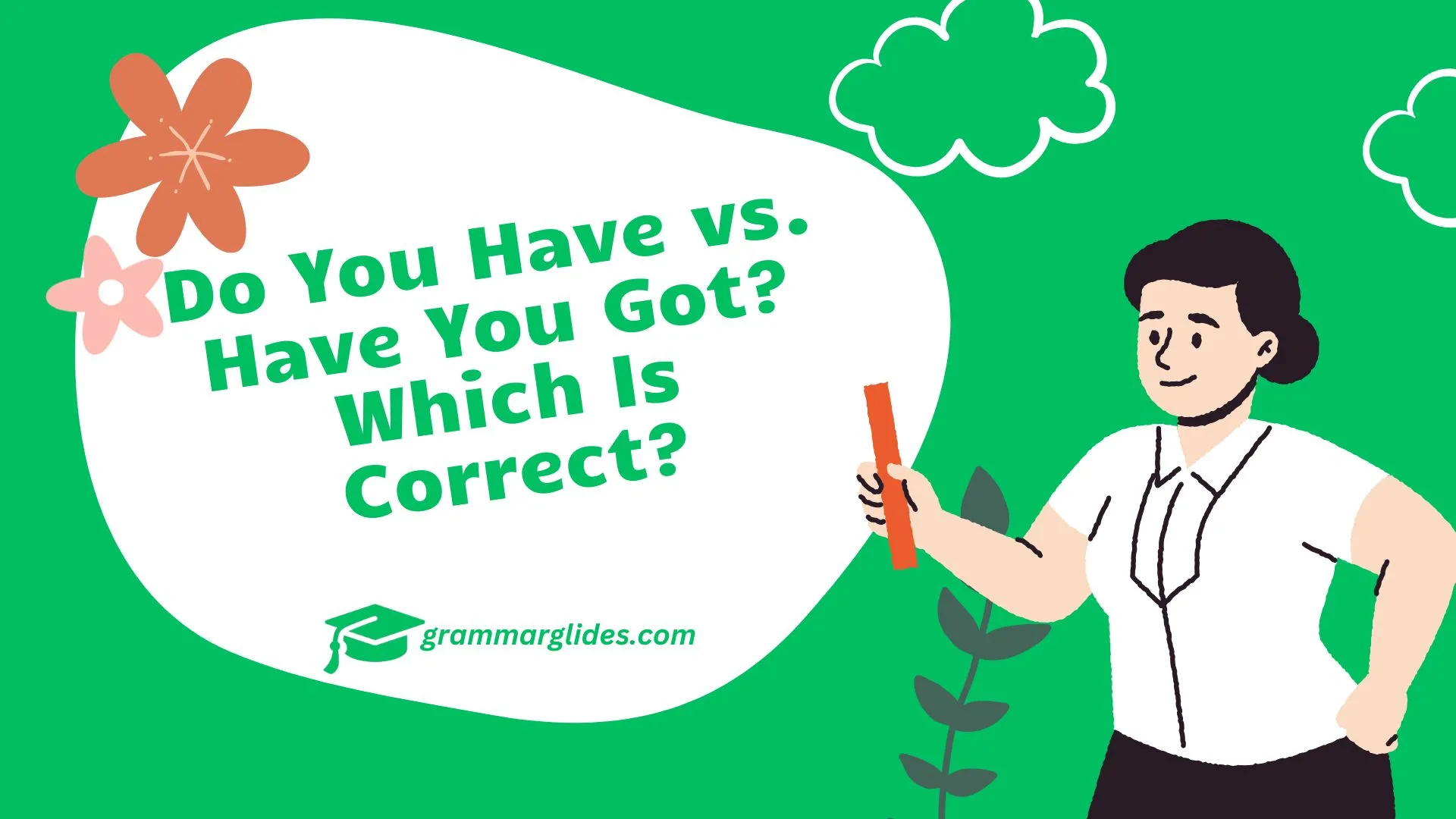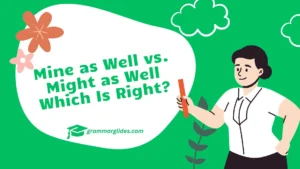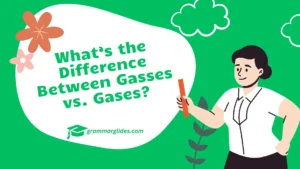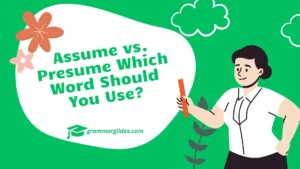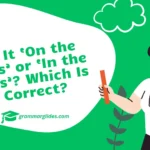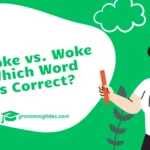“Do You Have?” vs. “Have You Got?” Let’s break down the key differences!“
When it comes to English phrases, some expressions can be confusing, especially when both forms seem to mean the same thing. A common example is the difference between “Do you have?” and “Have you got?”. While these two expressions are often used interchangeably, they have subtle differences in usage, formality, and regional preferences. Whether you’re learning English or simply looking to fine-tune your language skills, understanding these differences is important for clear and effective communication.
In this post, we’ll explore the nuances between these two phrases, when to use each one, and how they can change the tone of your conversations. We’ll break down the rules, provide examples, and clear up any confusion about when to use “Do you have?” and when to use “Have you got?”. Whether you’re in a formal business meeting or chatting casually with friends, knowing the appropriate context for these expressions will help you sound more natural.
By the end of this post, you will have a clear understanding of which phrase to use and when, ensuring you communicate with confidence. Let’s dive into the details!
Overview
The debate between “Do you have?” and “Have you got?” often comes up, especially for non-native English speakers. Although these phrases can seem similar, they are not always interchangeable. The expression “Do you have?” is more common in American English and is generally used in formal or neutral settings.
On the other hand, “Have you got?” is more common in British English and is often used in informal conversations. Understanding when to use each one is crucial for sounding natural and appropriate in various contexts. In this article, we’ll examine the core differences, historical context, formality, and more, so you can confidently choose the right phrase for any situation.
common English queries
1. Prevalence of “Do You Have?” vs. “Have You Got?”
- Prevalence: The phrase “Do you have?” is more widely used in American English, particularly in formal and professional contexts. On the other hand, “Have you got?” is more commonly used in British English and tends to be more informal.
2. Core Differences Between “Do You Have?” and “Have You Got?”
- Core Differences: While both expressions serve the same purpose, there’s a difference in formality and regional preferences. “Do you have?” is neutral and can be used in both formal and informal contexts, while “Have you got?” is mainly informal and often used in casual conversations.
3. Definition and Explanation
- Definition: “Do you have?” is a question asking if someone possesses something, often used in formal contexts. “Have you got?” is a similar question but used more informally, especially in everyday conversations.
4. Historical Context
- Historical Context: The phrase “Have you got?” has been in use for centuries, originating from British English. Over time, “Do you have?” became the more dominant form in American English due to language evolution and cultural differences.
5. Structural Differences
- Structural Differences: “Do you have?” uses the auxiliary verb “do” for forming questions, while “Have you got?” uses “have” as both the main verb and auxiliary verb, creating a slightly different sentence structure.
Each of these queries highlights important distinctions that can impact both the meaning and tone of a sentence. Understanding the nuances of these two forms can improve your communication in both formal and informal settings.
Prevalence
Core Differences Between “Do You Have?” and “Have You Got?”
The primary difference between “Do you have?” and “Have you got?” lies in their grammatical structure and regional usage. “Do you have?” is considered more formal and is used in both written and spoken English. It’s the preferred form in American English and in more professional or neutral contexts. “Have you got?” is often used in British English, and it’s more casual and frequently used in conversation.
Example 1:
- Do you have the time to meet later? (formal, American English)
- Have you got a moment to talk? (informal, British English)
Definition and Explanation
“Do you have?” uses the auxiliary verb “do” and is commonly used in both questions and statements in more formal situations. It’s a neutral and standard construction, widely accepted in both British and American English. “Have you got?”, however, is a colloquial form and is often used in informal settings. The verb “have” is used as a main verb, and “got” acts as an auxiliary verb.
Example 2:
- Do you have a phone? (formal)
- Have you got a phone? (informal)
Historical Context
The use of “have” as a main verb has existed in the English language for centuries, but the addition of “got” to form a question like “Have you got?” became more common in the 18th century, particularly in British English. It was seen as more conversational and informal. “Do you have?” has always been a more neutral and formal construction, and its usage became more widespread with the rise of American English.
Example 3:
- Do you have any questions about the presentation? (formal)
- Have you got any questions about the presentation? (informal)
Structural Differences
The structural difference between “Do you have?” and “Have you got?” lies in their auxiliary verbs. “Do you have?” requires the auxiliary verb “do” for forming questions and negatives, while “Have you got?” does not.
Example 4:
- Do you have a pen? (question)
- You do not have a pen. (negative)
- Have you got a pen? (question)
- You haven’t got a pen. (negative)
Formality in Choosing the Right Phrase
Choosing between “Do you have?” and “Have you got?” often depends on the level of formality in the context. “Do you have?” is generally the more formal option, suitable for professional emails, meetings, and other official settings. “Have you got?” is informal and is more likely to be heard in casual conversations between friends or family.
Example 5:
- Do you have any experience in this field? (formal)
- Have you got any experience in this field? (informal)
Formal vs Informal Contexts
Professional Settings
In professional settings, “Do you have?” is the preferred choice. It’s seen as more polished and formal, making it suitable for business emails, presentations, and interviews. Using “Have you got?” in these situations may seem overly casual.
Example 6:
- Do you have the documents I requested? (formal, business meeting)
- Have you got the documents I requested? (informal, friendly conversation)
Casual Conversations
“Have you got?” is more common in casual conversations or when speaking with friends and family. It is used in everyday situations where the tone is informal and relaxed.
Example 7:
- Do you have any plans for the weekend? (neutral)
- Have you got any plans for the weekend? (informal)
Assume vs. Presume Which Word Should You Use?
Cultural Variations: American vs British English Preferences
While both “Do you have?” and “Have you got?” are understood globally, their usage varies significantly between American English and British English. In American English, “Do you have?” is far more common in all contexts, including casual speech. In contrast, British English speakers often use “Have you got?” in informal settings.
Example 8:
- Do you have a car? (American English)
- Have you got a car? (British English)
Regional Differences
1. United States:
- “Do you have?” is used in all contexts.
- Scenario: In a job interview, someone might ask, “Do you have experience with this software?”
2. United Kingdom:
- “Have you got?” is commonly used in everyday conversation.
- Scenario: A friend might say, “Have you got any money for lunch?”
3. Australia:
- Similar to British English, “Have you got?” is used informally.
- Scenario: A colleague may ask, “Have you got the report I asked for?”
4. Canada:
- “Do you have?” is preferred, similar to American English.
- Scenario: A student may ask, “Do you have the class notes?”
5. India:
- Both phrases are used, but “Do you have?” tends to be more formal.
- Scenario: A business person might say, “Do you have a meeting scheduled for tomorrow?”
Impact on Communication
The use of “Do you have?” and “Have you got?” can impact how you’re perceived in conversation. Using “Do you have?” in formal contexts shows professionalism and respect for the situation. On the other hand, using “Have you got?” in informal settings may make you seem more approachable and relaxed.
Grammatical Perspectives: Auxiliary Verbs and Their Uses
Explanation of Auxiliary Verbs
An auxiliary verb is used to help form different tenses, moods, and voices of verbs. In “Do you have?” the auxiliary verb is “do”, while in “Have you got?”, “got” acts as the auxiliary verb. Understanding how auxiliary verbs work can help you use these phrases correctly.
Example 9:
- Do you have any tickets left? (auxiliary “do”)
- Have you got any tickets left? (auxiliary “got”)
5 Usage in Phrases
Both “Do you have?” and “Have you got?” are used in a variety of phrases, but it’s important to understand which one suits the context.
Example 10:
- Do you have a solution for this problem?
- Have you got a solution for this problem?
Contextual Usage: When to Use “Do You Have?”
Appropriate Situations
“Do you have?” is used when you want to sound neutral or formal, especially in business settings or when speaking with people you don’t know well.
Example 11:
- Do you have time to meet later this week? (formal)
Formal and Informal Examples
- Do you have any spare change? (formal)
- Have you got any spare change? (informal)
Common Mistakes
A common mistake is using “Have you got?” in situations that require a more formal tone. This can make you sound less professional.
“Have You Got?” – Informality and Spoken English
Informal Contexts
“Have you got?” is best suited for informal conversations, and it is a staple of spoken English. It’s the casual way to ask if someone possesses something.
Example 12:
- Have you got any idea what time it is? (informal)
Examples
- Have you got a dog?
- Have you got a moment to talk?
- Have you got a pen I can borrow?
Common Pitfalls
One pitfall to avoid is using “Have you got?” in situations that call for a more formal tone, like business emails or official communications.
Frequency of Use in Everyday Conversations
Statistical Insights
“Do you have?” is used more frequently in formal settings, while “Have you got?” is commonly used in informal conversations. In the UK, “Have you got?” is more prevalent in spoken English.
Regional Variations
“Do you have?” is used more often in the US, while “Have you got?” is used more frequently in the UK.
Nuances in Phrasing: Adding Emphasis and Clarity
Emphasis
Both phrases can add emphasis depending on the tone. For example, “Have you got?” can sound more relaxed or casual, while “Do you have?” can sound more direct and formal.
Clarity in Communication
Using the correct phrase for the context ensures your message is clear and appropriate for the situation.
Common Errors to Avoid With “Have You Got?”
Typical Mistakes
Avoid using “Have you got?” in formal emails or business contexts, as it may seem overly casual.
Correction
In professional settings, it’s better to use “Do you have?” to convey respect and formality.
Practice Exercises
Exploring Examples: Clarifying “Do You Have?” in Sentences
To help you understand the differences between “Do you have?” and “Have you got?” let’s look at some examples in various contexts:
- Do you have the report for the meeting? (formal, business context)
- Do you have any experience with this software? (formal, interview context)
- Do you have any suggestions for improving this project? (neutral, business setting)
These sentences show how “Do you have?” is typically used in more formal or neutral contexts, such as work-related or official situations.
Explanation:
- The phrase “Do you have?” is more neutral and professional, making it suitable for interviews, formal meetings, and written correspondence.
“Have You Got?” in Practice: Sample Sentences and Situations
Let’s now look at how “Have you got?” works in more casual, everyday contexts:
- Have you got any plans for the weekend? (informal, social context)
- Have you got a moment to chat? (informal, friendly conversation)
- Have you got a phone I can borrow? (informal, casual request)
These examples highlight how “Have you got?” is more often used in informal settings, such as casual conversations with friends, family, or colleagues in relaxed environments.
Explanation:
- “Have you got?” is used primarily in conversational English, typically in situations where a more relaxed or familiar tone is appropriate.
Key Insight
1. Can I use “Have you got?” in formal situations?
It’s best to avoid using “Have you got?” in formal settings like professional emails, business meetings, or interviews. Use “Do you have?” instead for a more neutral and formal tone.
2. Are there any situations where “Have you got?” is incorrect?
Yes, using “Have you got?” in formal or professional contexts can sound too informal. It’s more appropriate in casual conversations, particularly when speaking to friends or family.
3. Is “Have you got?” more common in British English?
Yes, “Have you got?” is more commonly used in British English, especially in spoken language, while American English speakers tend to prefer “Do you have?”
4. Can “Do you have?” and “Have you got?” mean the same thing?
Yes, both phrases generally mean the same thing, but the context, formality, and region can determine which phrase is more appropriate.
5. Which one should I use in an interview?
In an interview, it’s best to use “Do you have?” as it sounds more professional and formal.
Wrap Up
In conclusion, knowing the difference between “Do you have?” and “Have you got?” can help you sound more natural and appropriate in different settings. While both phrases generally mean the same thing, context and formality should guide your choice. “Do you have?” is ideal for formal or professional situations, especially in American English. “Have you got?” works best in casual, informal conversations, and is commonly used in British English.
By understanding these subtle diferences, you’ll be able to communicate with clarity and confidence, whether you’re writing an email or having a casual chat. So, next time you’re unsure, think about the setting you’re in and choose the phrase that fits best! Whether you’re in a business meeting or grabbing coffee with friends, using the right expression will help you connect better and sound more natural.

Hi! I’m Ethan-Matthews, author of Grammar Glides. I create engaging content to make learning English grammar simple and enjoyable. Join me to master the nuances of the language with ease and confidence.
